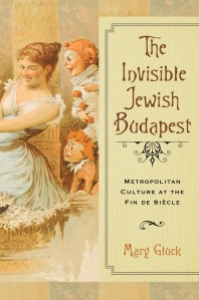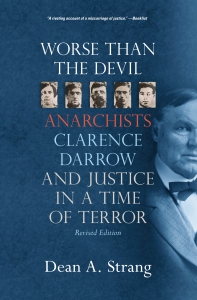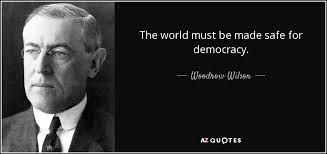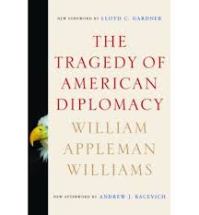Each year, a committee of librarians representing American public libraries and K-12 school libraries select university press books most suited to their audiences. The result is a bibliography, University Press Books for Public and Secondary School Libraries, an annual collection development tool published with the help and support of two divisions of the American Library Association: the American Association of School Librarians (AASL) and, from public libraries, the Collection Development and Evaluation Section of the Reference and User Services Association (RUSA/CODES). Each book chosen receives one or two sets of ratings, from a school library reviewer, a public library reviewer, or both. Books rated by the school librarians are also recommended for grade levels.
The following University of Wisconsin Press books (published in 2015) were chosen for the annual list!
“The Best of the Best” titles
 The Norske Nook Book of Pies and Other Recipes, Jerry Bechard and Cindee Borton-Parker
The Norske Nook Book of Pies and Other Recipes, Jerry Bechard and Cindee Borton-Parker
Each year, panelists from the joint selection committee of librarians present a small selection of their favorite recommendations at the American Library Association annual conference at a “Best of the Best from the University Presses” session, to be held this year at the ALA conference in Orlando, Florida on Sunday, June 26, 2016, 1:00 p.m.
Outstanding-rated titles from the University Press Books Committee
- Living Black: Social Life in an African American Neighborhood, Mark S. Fleisher
- The Norske Nook Book of Pies and Other Recipes, Jerry Bechard and Cindee Borton-Parker
The above titles received ratings of “Outstanding” by members of the 2013 University Press Books Committee, recommended as essential additions to most public and/or school library collections.
000-099 General Knowledge
 071.3 Baughman, James L., Jennifer Ratner-Rosenhagen, and James P. Danky (Editors)
071.3 Baughman, James L., Jennifer Ratner-Rosenhagen, and James P. Danky (Editors)
Protest on the Page: Essays on Print and the Culture of Dissent since 1865
Explores the intertwined histories of print and protest in the United States from Reconstruction to the 2000s. Ten essays look at how protesters of all political and religious persuasions, as well as aesthetic and ethical temperaments, have used the printed page to wage battles over free speech; test racial, class, sexual, and even culinary boundaries; and to alter the moral landscape in American life.
LC 2014030784, ISBN 9780299302849 (p.), ISBN 9780299302832 (e.)
School Libraries: General Audience/High School Public Libraries: General Audience
300-319 Sociology, Anthropology, Cultures
 305.893 Grady, Sandra Improvised Adolescence: Somali Bantu Teenage Refugees in America
305.893 Grady, Sandra Improvised Adolescence: Somali Bantu Teenage Refugees in America
A glimpse into the lives of African refugee teens, as they negotiate the differences between African and American ideas about the transition from childhood to adulthood. Of interest to social services workers and educators as well as scholars of folklore, anthropology, African studies, and child development.
LC 2014030780, ISBN 9780299303242 (p.), ISBN 9780299303235 (e.)
School Libraries: Special Interest/High School, Professional Use Public Libraries: Special Interest
 305.896 Fleisher, Mark S. Living Black: Social Life in an African American Neighborhood
305.896 Fleisher, Mark S. Living Black: Social Life in an African American Neighborhood
Breaks the stereotype of poor African American neighborhoods as dysfunctional ghettos of helpless and hopeless people. Despite real and enduring poverty, the community described here—the historic North End of Champaign, Illinois—has a vibrant social life and strong ties among generations.
LC 2015008381, ISBN 9780299305345 (p.), ISBN 9780299305338 (e.)
School Libraries: Outstanding/Professional Use Public Libraries: General Interest
*Outstanding* rating: “This quality ethnography reads like a series of engaging stories. The study reflects both excellent research and a clear sense of the provisions that ensure quality in qualitative research. A clear voice supporting diversity and our awareness thereof.”—Janie Pickett (AASL)
320-329 Political Science
 327.730 Bartley, Russell H. and Sylvia Erickson Bartley Eclipse of the Assassins: The CIA, Imperial Politics, and the Slaying of Mexican Journalist Manuel Buendía
327.730 Bartley, Russell H. and Sylvia Erickson Bartley Eclipse of the Assassins: The CIA, Imperial Politics, and the Slaying of Mexican Journalist Manuel Buendía
Investigates the sensational 1984 murder of Mexico’s most influential newspaper columnist, Manuel Buendía, and how that crime reveals the lethal hand of the U.S. government in Mexico and Central America during the final decades of the twentieth century. This is a stellar, courageous work of investigative journalism and historical scholarship—grippingly told, meticulously documented, and doggedly pursued over thirty years.
LC 2015008379, ISBN 9780299306403 (c.), ISBN 9780299306434 (e.)
School Libraries: Specialized Interest / Professional Use Public Libraries: General Interest
640-649 Home Economics
 641.860 Bechard, Jerry and Cindee Borton-Parker The Norske Nook Book of Pies and Other Recipes
641.860 Bechard, Jerry and Cindee Borton-Parker The Norske Nook Book of Pies and Other Recipes
The Norske Nook’s mile-high meringue and dairyland deliciousness attracts foodies, celebrities, and tourists from around the world to sample its glorious pies. This beautifully photographed cookbook features more than seventy pies, including thirty-six blue ribbon-winners at the annual National Pie Championship.
LC 2014037003, ISBN 9780299304300 (c.)
School Libraries: Outstanding/ Middle School, High School, Professional Use Public Libraries: General Interest *Outstanding* rating: “If you aren’t able to make a personal visit to one of the Norske Nook’s ‘pie shrines’ this title will certainly help any home baker re-create some of their amazing recipes. Of course there are old favorites like apple and cherry pie, but you can also find mouth-watering recipes for a Snickers caramel pie, a raspberry white chocolate pie, or a Northwoods root beer float pie. The basics like pie crusts and toppings are covered in their own chapters, and non-pie chapters are devoted to tortes, muffins, cookies and Scandinavian specialties. Even non-bakers will enjoy drooling over the beautiful photographs. The directions are clear and easy-to-follow, which should make this title very appealing to middle and high school aspiring pie bakers.”—Judi Repman (AASL)
700-759 Fine Arts
 759.13 Langer, Cassandra Romaine Brooks: A Life
759.13 Langer, Cassandra Romaine Brooks: A Life
The artistic achievements of Romaine Brooks (1874-1970), both as a major expatriate American painter and as a formative innovator in the decorative arts, have long been overshadowed by her fifty-year relationship with writer Natalie Barney and a reputation as a fiercely independent, aloof heiress who associated with fascists in the 1930s. Langer provides a richer, deeper portrait of Brooks’s aesthetics and experimentation as an artist.
LC 2015008825, ISBN 9780299298609 (c.), ISBN 9780299298630 (e.)
School Libraries: Specialized Interest / High School Public Libraries: General Interest
780-799 Music, Performing Arts, Recreation, Sports
 797.122 Diebel, Lynne (Illustrated by Robert Diebel) Crossing the Driftless: A Canoe Trip through a Midwestern Landscape
797.122 Diebel, Lynne (Illustrated by Robert Diebel) Crossing the Driftless: A Canoe Trip through a Midwestern Landscape
Crossing the Driftless is both a traveler’s tale of a 359-mile canoe trip and an exploration of the dramatic environment of the Upper Midwest’s Driftless region, following the streams of geologic and human history.
LC 2014030800, ISBN 9780299302948 (p.), ISBN 9780299302931 (e.)
School Libraries: Regional Specialized Interest / High School Public Libraries: Regional General
800-819 American Literature
 813.54 Merlis, Mark JD: A Novel
813.54 Merlis, Mark JD: A Novel
Thirty years after Jonathan Ascher’s death, Martha finally opens her husband’s journals and discovers his secret affairs with men as well as his all-absorbing passion for their deceased son, Mickey. Mark Merlis shows readers a vivid picture of a family who cannot find a way to speak their love for one another.
LC 2014030801, ISBN 9780299303501 (c.), ISBN 9780299303532 (e.)
School Libraries: Specialized Interest / Professional Use Public Libraries: General Interest
 813.6 DeVita, James A Winsome Murder
813.6 DeVita, James A Winsome Murder
A serial killer brings bloody murder to the pastoral Wisconsin town of Winsome Bay, requiring the expertise of detective James Mangan, a hard-bitten Chicago cop with an unexpected knowledge of Shakespeare.
LC 2014042916, ISBN 9780299304409 (c.), ISBN 9780299304430 (e.)
School Libraries: General Interest / High School Public Libraries: General Interest
 813.6 Morales, Jennifer Meet Me Halfway: Milwaukee Stories
813.6 Morales, Jennifer Meet Me Halfway: Milwaukee Stories
When an African American teen suffers a serious accident in the home of his white neighbor, his community must find ways to bridge divisions between black and white, gay and straight, old and young.
LC 2014030802, ISBN 9780299303648 (p.), ISBN 9780299303631 (e.)
School Libraries: Regional General Interest / Professional Use Public Libraries: Regional General Interest
830-899 Literature of Other Languages
 882.01 Euripides (Verse translations by Francis Blessington, with introductions and notes) Trojan Women, Helen, Hecuba: Three Plays about Women and the Trojan War
882.01 Euripides (Verse translations by Francis Blessington, with introductions and notes) Trojan Women, Helen, Hecuba: Three Plays about Women and the Trojan War
“These lively, accurate translations will allow readers and theater audiences to appreciate the power of Euripidean tragedy. Blessington’s language is spare and his translation fairly literal, allowing direct—sometimes punchy—delivery while retaining poetic expressions from the Greek.”—Francis Dunn, author of Tragedy’s End: Closure and Innovation in Euripidean Drama
LC 2015010084, ISBN 9780299305246 (p.), ISBN 9780299305239 (e.)
School Libraries: General Interest / High School, Professional Use Public Libraries: General Interest
950-969 Asian, Middle Eastern, and African History
 959.004 Lee, Mai Na M. Dreams of the Hmong Kingdom: The Quest for Legitimation in French Indochina, 1850-1960
959.004 Lee, Mai Na M. Dreams of the Hmong Kingdom: The Quest for Legitimation in French Indochina, 1850-1960
Authoritative and original, Dreams of the Hmong Kingdom is among the first works of its kind, exploring the influence that French colonialism and Hmong leadership had on the Hmong people’s political and social aspirations.
LC 2014035663, ISBN 9780299298845 (p.), ISBN 9780299298838 (e.)
School Libraries: Specialized Interest / Professional Use Public Libraries: Specialized Interest
 967.610 Amony, Evelyn (Edited with an introduction by Erin Baines) I Am Evelyn Amony: Reclaiming My Life from the Lord’s Resistance Army
967.610 Amony, Evelyn (Edited with an introduction by Erin Baines) I Am Evelyn Amony: Reclaiming My Life from the Lord’s Resistance Army
A harrowing account by one of the 60,000 children abducted by the violent African rebel group, the Lord’s Resistance Army. Amony tells of her life as a forced wife to LRA leader Joseph Kony, her eleven years in the LRA, her part in a peace delegation after her capture by the Ugandan military, and her current work as a human rights advocate.
LC 2015008824, ISBN 9780299304942 (p.), ISBN 9780299304935 (e.)
School Libraries: General Interest / High School, Professional Use Public Libraries: General Interest


 May 11
May 11 May 11
May 11 May 25
May 25 Available now
Available now
 defiantly kept his seat and did not join in the applause.
defiantly kept his seat and did not join in the applause.


